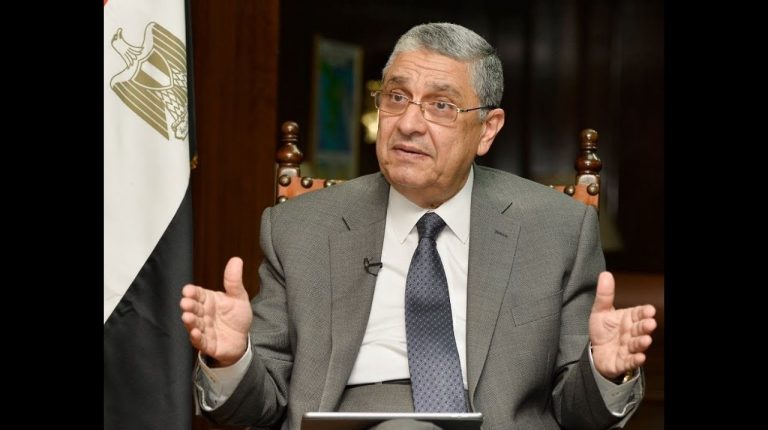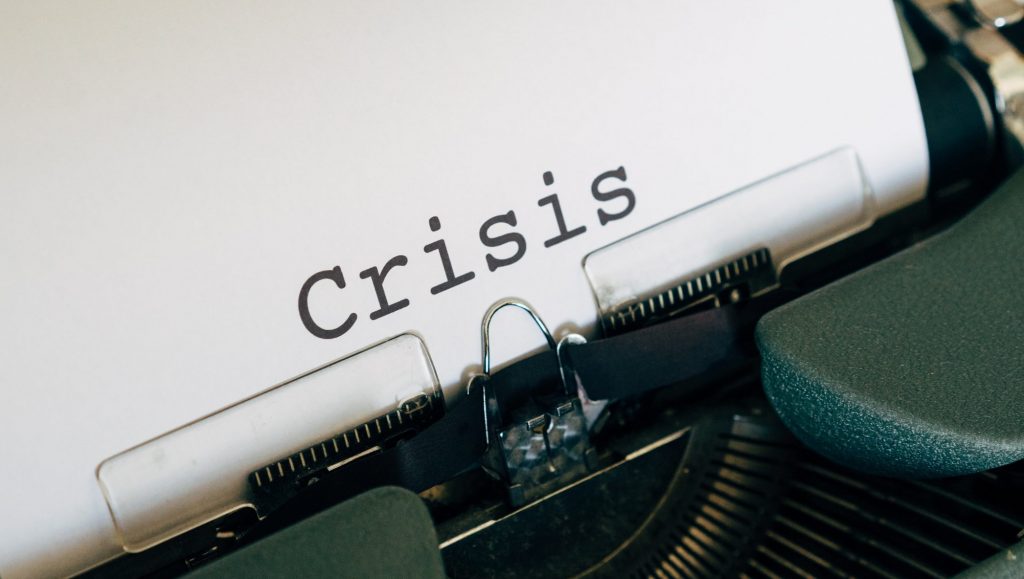This article first appeared in April’s print edition of Business Monthly.
Emerging markets have always sought to attract foreigners to invest in manufacturing, construction, agriculture, and services to grow their economies. “FDI provides many benefits, including efficient capital allocation, access to financial markets and new technology, [and] increasing total factor productivity and growth,” said a note from the Economic Research Forum, a local think tank, in January 2023.
However, FDI is increasingly challenging to secure. A January report from the UN Conference on Trade and Development (UNCTAD) said, “FDI to developing countries fell by 9% … in 2023.”
Egypt faces a tougher time than most. The conflict in the neighboring Gaza Strip, attacks on ships at the southern entrance to the Red Sea, calls for boycotting Western brands and the need for structural reforms significantly increase the risk for multinationals.
To instill some confidence in foreign investors, governments need creditor and debtor-friendly bankruptcy laws. “The benefits of competition and innovation are largely ensured by both market entry and exit,” said a 2019 OECD report. “Market entry helps drive competition … market exit is considered a key instrument to sanction unprofitable product and service ideas, thereby renewing the industry population through a process of creative destruction.”
Governments also need reliable, fast and transparent business conflict resolution frameworks to reaffirm foreign investor confidence. “Disputes are an inevitable part of business dealings,” UN Legal Group, an Indian law firm, said in a September LinkedIn blog post. “What sets successful agreements apart from troubled ones is often the presence of well-crafted dispute resolution clauses.”
In the past several years, the Egyptian government has improved its conflict resolution frameworks and bankruptcy laws. However, more updates might be needed as GCC countries are changing their bankruptcy and conflict resolution legislation to seek investment diversification away from oil.
Resolve and exit
Having multiple options to resolve business conflicts has always been vital for multinational companies looking to invest abroad, particularly in emerging markets. “An increasingly important question for lawyers is: “Where and according to which law would I choose to have the mediation of my client’s matter conducted?” Nadja Alexander, director of the Singapore International Dispute Resolution Academy, wrote in a blog on the site of Wolters Kluwer, a consultancy.
She stressed that fair and transparent dispute-resolution frameworks “allow a win/win scenario, fast procedures and parties to control the process,” thus enabling the “preservation of business relationships.” That “secures future investments by avoiding risks typically associated with classical dispute resolution mechanisms,” Alexander said.
Laws allowing fast and safe market exits also are vital for investor confidence. They are particularly important to international venture capitalists seeking profitable startup investments. “Exits are important for generating returns to investors and reinvesting in new startups,” Abdelrahman Soliman, a senior investment analyst at Multiples Startup Advisory, wrote in a September blog on LinkedIn.
He added that having low exit barriers “could help close the $55 billion funding gap [in MENA] and unlock more of the region’s potential. With the right momentum, the MENA startup funding scene has the opportunity for robust growth over the coming decade.
Going to court
Egypt’s “litigation system was historically the only method of dispute settlement, whether for local business disputes or international ones,” Chambers and Partners, a think tank, said in a paper. That means “the caseload in local courts became overburdened.”
As a result, conflict resolution in Egypt was a “time-consuming mechanism that … failed to keep up with the requirements of modern international commercial transactions,” the research paper added.
To expedite and improve the process, the government established Egypt Economic Courts (EEC) in 2008 to settle “specific types of disputes before well-suited judges based on specific business knowledge and expertise,” said the Chamber and Partners note.
The courts handle cases that violate local laws governing capital markets, investment, intellectual property, financial leasing, technology transfer, unfair competition, commercial agency, insolvency and banking laws.
The government amended EEC law in 2018, giving it “exclusive jurisdiction over all bankruptcy … cases and proceedings related to restructuring, preventive composition and [other] bankruptcy matters,” Adsero Ragy Soliman & Partners, a law firm, said in a 2021 note. “To that end, a bankruptcy department was established in each economic court and headed by a Court of Appeal judge.”
The following year, EEC gained more legal jurisdiction, “creating a specialized department … to supervise the enforcement of judgments,” noted Adsero Ragy Soliman & Partners.
EEC also would handle economic “criminal and non-criminal matters.” The former include crimes committed under money laundering, moveable collateral, microfinance, cybercrime and bankruptcy laws.
Meanwhile, the additional non-criminal economic jurisdictions cover disputes under EGP 10 million arising from violations of local maritime, civil aviation, consumer protection, moveable collateral, specialized economic zones, microfinance and cybersecurity laws.
The 2019 amendments also recognized the legality of electronic submissions.
Digitization further increased in 2020, with a ministerial decree that “creates a unified electronic registry to record the chosen email addresses for individuals and entities willing to receive the electronic litigation services [and get] notified electronically of all case proceedings,” said Adsero Ragy Soliman & Partners.
Those changes aim to “encourage local and foreign investments while guaranteeing a well-established judicial order,” noted the paper from Adsero Ragy Soliman & Partners. They also were intended to “result in quick settlement [by] integrating full electronic services.”
Meanwhile, commercial courts continue to have a role in economic dispute resolution. A legal note from Badawy Law, a local law firm, noted those courts still deal with “commercial contract disputes [and] real estate and construction.”
Administrative courts also tackle conflicts involving government agencies or civil servants that “arise from various areas such as permits, licenses, tenders, public contracts, and regulatory decisions,” the Badawy Law note said. They also handle tax and customs disputes, environmental protection, and land planning and zoning conflicts.
Dispute centers
In 1979, the government established the Cairo Regional Centre for International Commercial Arbitration (CRCICA), allowing foreign companies and investors to settle local conflicts according to international laws and standards. It acts as an impartial party that settles disputes between the state and the foreign investor away from the courts.
In January, CRCICA updated its rules to better regulate the electronic filing of documents and online hearings. The amendments also state that “the applicable law pertaining to the arbitration agreement … defaults to the law of the place of arbitration … unless otherwise specified and explicitly agreed on in writing between the parties.”
The modified laws also make it easier to quickly dismiss baseless claims and expedite the process of appointing emergency arbitrators and arbitration. The modifications also simplified the filing fees system and reduced the number of tiers.
According to Robert Li, a senior reporter at Global Legal Group, a specialized news portal, “The changes … bring CRCICA substantially up to date with the practices and policies of leading modern arbitral institutions and position it well to compete in the region.”
In 2009, the General Authority for Investment and Free Zones (GAFI) added a second option to handle business disagreements outside the courts. The Dispute Settlement Center “settles disputes that may arise between investors through mediation,” said GAFI. Its rules align with “recommendations by the UN Commission on International Trade Law.”
According to GAFI, the Center aims to “reach an expedited solution that originates from the parties in dispute in a manner that fulfills their interest and spares them litigations’ complicated, lengthy procedures and unpredictable outcomes.”
In 2019, the government created a specialized conflict resolution center: the Egyptian Center for Arbitration and Settlement of Non-Banking Financial Disputes. According to its blurb, the Center focuses on resolving conflicts “through arbitration, mediation and conciliation.”
Sectors that can try cases in the arbitration center are capital market, insurance, non-bank financial technology and non-bank financial activities, including mortgages, leasing, factoring, and consumer finance.
Second chance law
In 2018, Egypt passed an all-new bankruptcy law “to create an atmosphere [to] attract foreign and national investments,” according to the official Restructuring, Preventive Composition and Bankruptcy (RPCB) law document.
Prior to that law, any organization facing financial distress was “regulated under Chapter 5 of the Egyptian Commercial Law … of 1999,” Riad & Riad Law Firm said in its RPCB law explainer note. The old law did not differentiate between negligent bankruptcy from unexpected difficulties and those who willfully committed fraud. “Both would get jail time.”
The 2018 law corrects that and “complements the [2017] Investment Law in enhancing sustainable economic development and provides [a] safety valve for financial failures.”
It has clauses very close to the U.S. bankruptcy law, which allows debt restructuring and continued operation after filing. “The [local] law enhances a new culture of creditor cooperation in debt restructuring to avoid the closure of businesses as well as promotes distribution and use of assets of failing businesses more efficiently and equitably.”
Another feature of the RPCB law is that a local “branch office or an agency … can be declared bankrupt in Egypt even if not declared bankrupt in [other] countries” where it operates.
Those provisions only apply to companies in Egypt that can prove “non-fraudulent” practices led to their demise. Additionally, the 2018 law only applies to companies with a minimum of EGP 1 million in assets. Also, companies that have applied for liquidation or preventive conciliation before 2018 cannot apply for bankruptcy under the 2018 law.
To investigate each bankruptcy case, the EEC appoints an expert committee from its Bankruptcy Expert Schedule list. The committee regulates the restructuring of the company’s finances and has up to five years to execute its plan. “The applicant will continue to run [the] business during … implementation,” the Riad & Riad Law Firm noted. They will also be responsible for obligations and contracts signed before and after the plan’s ratification.
The 2018 law also allows mediation “to preserve the bankrupt’s reputation,” noted Riad & Riad Law Firm. “A mediation system is introduced to help resolve disputes in an approachable way that could fulfill a compromise for all the parties.”
In 2020, the Cabinet approved changes to the bankruptcy law to more clearly differentiate between various types of creditors. These changes also give creditors more power to decide the fate of the bankrupt company, as they can vote on whether to put it into administration or liquidate it. However, the 2020 amendments also allow debtors to apply to the EEC for protection from liquidation.
Competition from GCC?
GCC nations have been updating bankruptcy and conflict resolutions laws as they seek non-oil investors to diversify their economies.
The UAE leads the way, with changes to both its local reforms and additional resolution options offered by the Dubai International Financial Centre (DIFC) and Abu Dhabi Global Market. The DIFC reforms offer additional “debtor rehabilitation procedures akin to [US bankruptcy law] Chapter 11 and recognize insolvency proceedings in its courts,” Yaser Dajani, managing director of Quantuma Middle East, an advisory firm, said in a March blog post.
Saudi Arabia, Oman, Bahrain and Kuwait updated their conflict resolution and bankruptcy laws between 2018 and 2020. “Their direction of travel is broadly similar to the UAE,” said Dajani. “But important differences remain in both legislation and application, underlining the need for local expertise.”
However, those reforms are “not being used as widely or as effectively as many would have hoped,” noted Dajani. “There are still questions over whether these reforms are meeting their key aims.”
He added that the “good news” is that MENA countries can develop effective and investor-friendly business conflict resolution and bankruptcy legislation with the “right expertise, approach, and support.”







